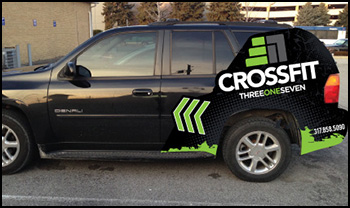A frequent question asked by Affiliate owners is, “Should I buy my vehicle under my business name, or in my personal name?”
 In terms of a tax write off, you can get the same tax deduction whether you own it personally or in the business name. The way the tax rule works is you can take either: 1) what you actually spend on the vehicle (this would be oil changes, tires, gas, interest on your car loan or your lease payment, other repairs, etc.) or, 2) your standard mileage deduction based on your business miles.
In terms of a tax write off, you can get the same tax deduction whether you own it personally or in the business name. The way the tax rule works is you can take either: 1) what you actually spend on the vehicle (this would be oil changes, tires, gas, interest on your car loan or your lease payment, other repairs, etc.) or, 2) your standard mileage deduction based on your business miles.
As the IRS rule states, “If you use your car in your business and you use it only for that purpose, you may deduct its entire cost of operation. However, if you use the car for both business and personal purposes, you may deduct only the cost of its business use.
You can generally figure the amount of your deductible car expense using one of two methods: the standard mileage rate method, or the actual expense method. The kicker is that regardless of which tax method you choose (actual versus mileage), you need to keep track of your business miles and your total miles. This means keeping a mileage log. Before choosing a method, you may want to figure your deduction both ways to see which gives you a larger deduction. For the current standard mileage rate, search standard mileage rates on IRS.gov.
Unless your box operates a fleet of vehicles, my recommendation is to keep the car in your personal name. If you put it under the business name, you have a higher interest rate, and you have to obtain a business insurance policy on it, which is also more expensive than the personal insurance.”
It’s just more expensive all around if it is a business asset.
As always, it helps to explore your options with a certified public accountant. You can also learn more here.
Guest post by: John D. Briggs, CPA. John is a partner and tax specialist with Incite Tax, certified public accountants experienced in all matters of accounting and taxation, IRS problem resolution, estates and trusts, business formation, financial planning and investment, real estate and business sales. John also is responsible for all of 321GoProject’s accounting and taxes.